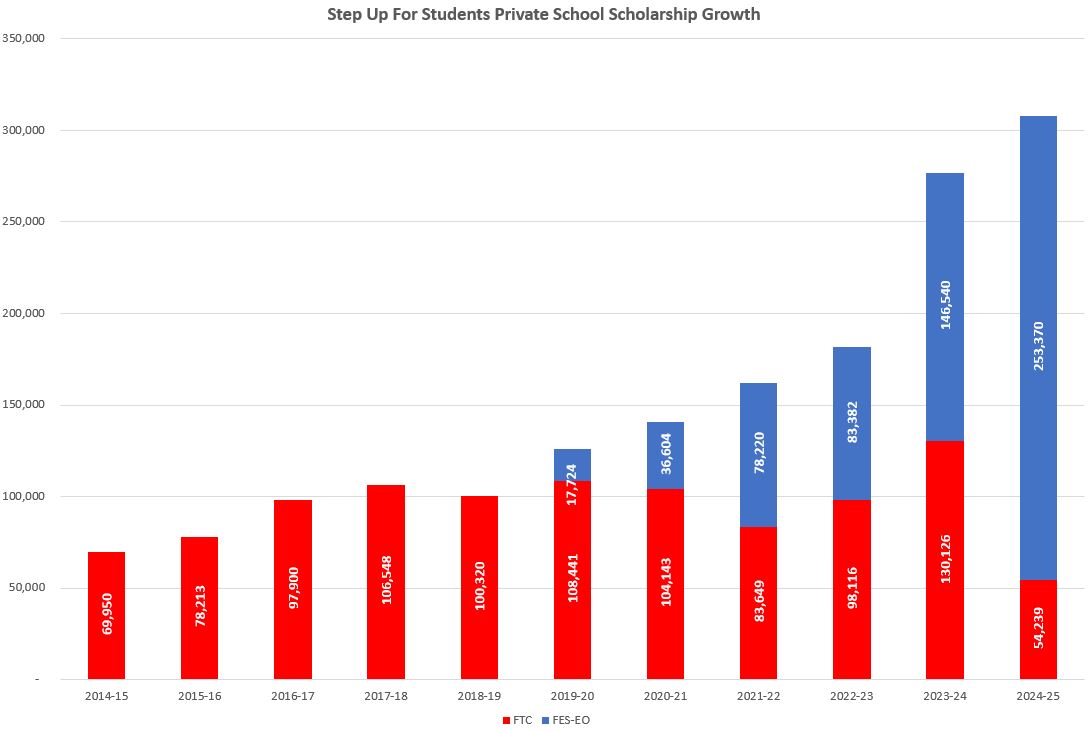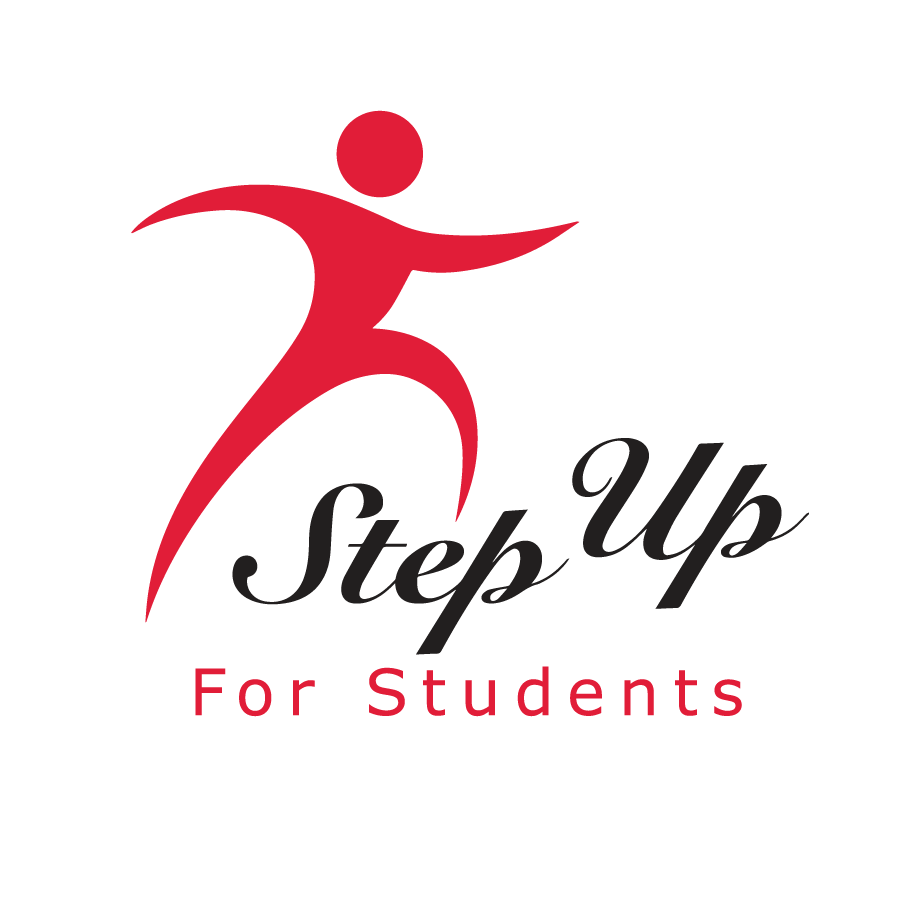Florida Scholarships Give K-12 Students Educational Options
Scholarship Fast Facts
2024-25 Fast Facts:
54,239 students enrolled on the Florida Tax Credit Scholarship (FTC).
253,370 students enrolled on Family Empowerment Scholarship for Educational Options (FES-EO).
59,925 students with the Personalized Education Program scholarship (PEP).
More than 120,000 students on FTC or FES-EO qualify for free or reduced-price lunches
55% Black or Hispanic.
39% of students live in single-parent households.
2,278 participating private schools.
Download the Private School Scholarship Fact Sheet ›
Download the Personalized Education Program (PEP) Fact Sheet ›
The Florida Tax Credit Scholarship Program (FTC) and the Family Empowerment Scholarship for Educational Options (FES-EO)
Florida’s two private school scholarship programs, the Florida Tax Credit Scholarship Program and the Family Empowerment Scholarship for Educational Options (FES-EO) give students learning options not available to them because of their financial circumstances.
Both programs provide private school scholarships or help with transportation costs to an out-of-district public school.
Florida also offers the first-of-its-kind education savings account program for parents wishing to provide a home education program for their child called the Personalized Education Program (PEP).
Urban Institute Study
A first-of-its-kind student on the long-term effects of the scholarship program found that FTC scholarship students are up to 43 percent more likely to go to college and up to 29 percent more likely to earn an associate's degree. See fact sheet here.
Florida Department of Education Reports
More than a decade of research by academics at the University of Florida, Northwestern University and now Florida State University, have found that once on the scholarship program, students who had been struggling academically now maintain pace with the average student nationally.
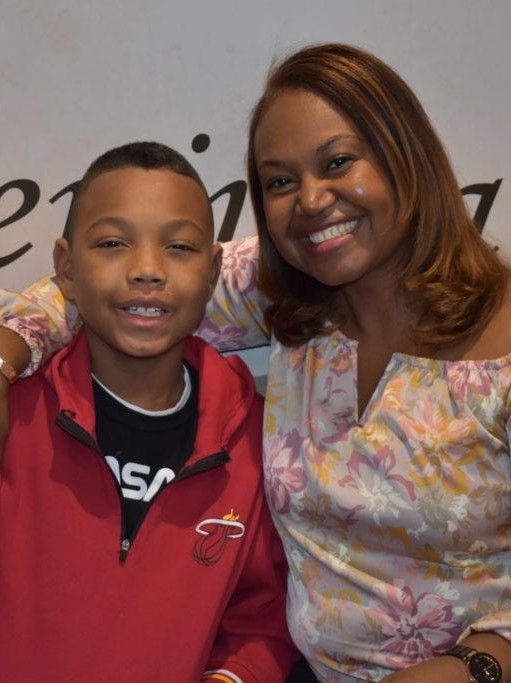
The Typical Student
The Typical School
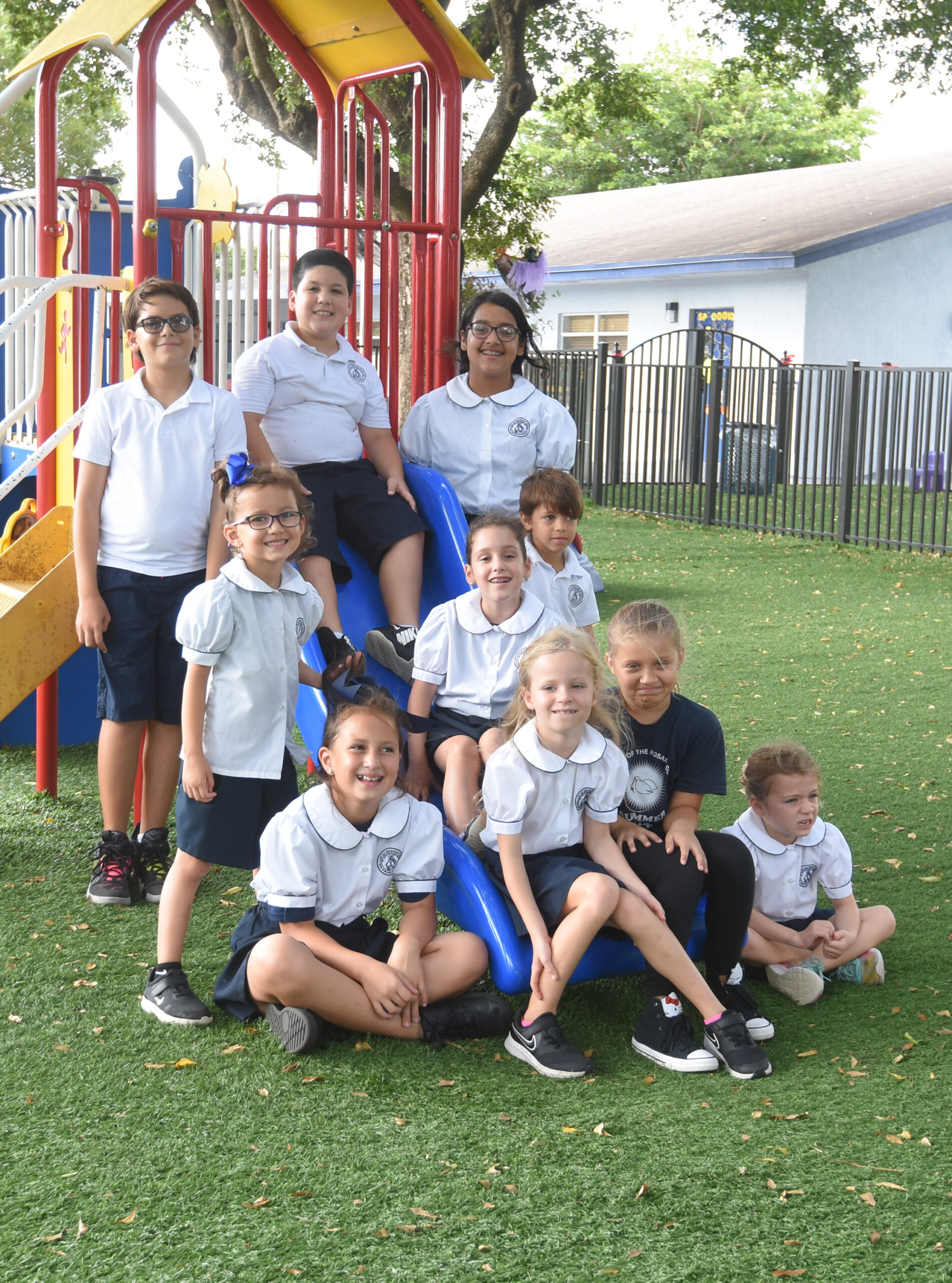
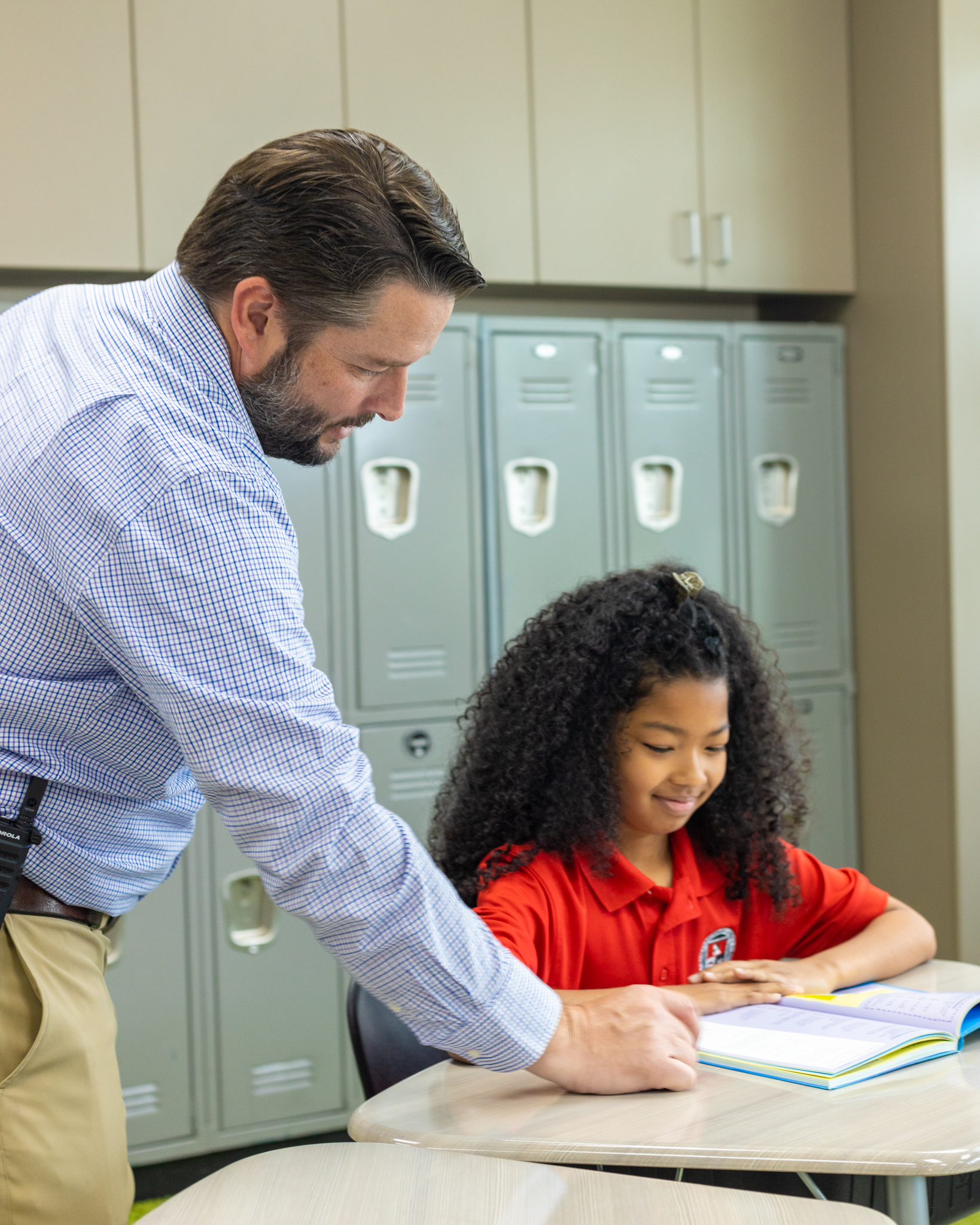
Transparency and Legal Requirements
The History of Choice in Florida
Florida Scholarship Law
Florida’s education choice programs are governed in the Florida Statutes chapter 1002. In 2001, the main law was 1,332 words. In 2022, it was 27,406 (governed by 1002.394, 1002.395, 1002.40, 1002.42 and 1002.421.)
Read more about program rules and accountability here.
Reports
Step Up For Students
Income-Based Scholarship Growth
